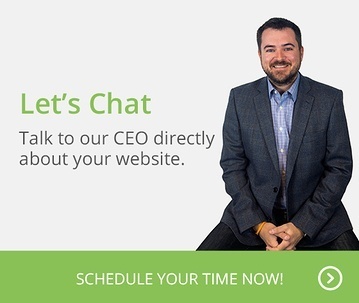A couple of weeks ago, I had a call with a friend of a friend who was just starting out on an entrepreneurial endeavor. I volunteered to spend some time with them and give them a baseline of things they can do to build an online presence. They are definitely motivated but haven’t much digital experience. So, I had to start with basics and weave around the complex topics.
But in the middle of this, it occurred to me just how much more complex everything has gotten. In a world where everything is advertised as being easy, self-serve, and intuitive, the world of digital has gotten more complex and filled with nuance. These days, you have all these different areas of professional focus that are distinctly different. Design is different from development, which differs from digital marketing. And within each of those, you have subspecialties. A UI/UX designer won’t necessarily know how to develop utilizing the latest JavaScript libraries. An SEO guru won’t know much about effective paid search. There are literally hundreds of specialties that constitute digital production – and most of them require thousands of hours to master.
Yet, many entrepreneurs just assume that, like everything else, the world of web design and development has gotten easier. And to an extent, on the lowest tier, this is true. Tools like Wix and Squarespace make it easy to set up a quick and dirty website that looks decent and doesn’t cost an arm and a leg. Unfortunately, the gap between small businesses and more giant corporations online is more expansive than ever and getting wider. In 1999, it was entirely feasible that a small company could have a website as capable and functional as a company 1000 times larger. Today that isn’t doable. Larger companies are spending more on development and marketing and can effectively remove your ability to compete for digital eyeballs.
To expand on that, as the web became more complex, it also became more expensive to develop and maintain websites while still adhering to “industry standards.” Much of what you see in terms of compliance, whether it be Accessibility or ADA compliance, PCI or e-commerce compliance, security or user data protections – these all take time, expertise, and effort to implement and adhere to. And as larger companies are willing to spend on these categories, they separate themselves from their smaller counterparts and create a wide gap wherein the smaller sites are suffering, and the larger ones are benefiting.
One area where we see this of recent concern is site speed. As we know, Google is pushing their Core Web Vitals as a new ranking factor. This means websites need to meet new standards for load time and performance. This is fine and good if you have a large development team, but if you rely on those smaller providers or have utilized low-cost WordPress themes – chances are you will not comply. To do so, you’ll be looking at a substantial cost in terms of rebuilding to meet the quality standard Google is requiring. Large companies can bear that cost without much trouble. They can choose not to even comply and rely on their scale and other ranking factors to negate the negative effect. Either way, the small guy loses.
Right about now, you’re probably asking how you CAN compete these days online. The good news is that there are plenty of opportunities to compete in niched areas that are neglected. If you can adhere to the relevant compliance and performance standards, you have a shot at competing for traffic.
If I was starting a new company and building a website today, I’d make it a point to focus on these areas:
- Find your sandbox to play in: Understand the genuine opportunity to build and the relative scale. The more niched, the better. Understand that if you have a brick-and-mortar business, then you may get away with those all-in-one solutions. But if you want to play serious ball online, be ready to invest in it. This applies particularly if your idea is online-only, such as a SaaS application.
- Focus on adherence to standards that matter and make a difference. If you are building a site based on organic traffic, then focus on speed and performance. If you are building almost anything from scratch, be accessible from day one. Focus less on other issues, such as CCPA, which wouldn’t apply to a small business anyway. Don’t be distracted by things that don’t matter, which is hard if you may have come from a corporate background.
- Find (well-rounded) help! As I said above, there are too many areas of focus. Hiring one “web designer” isn’t enough. A multi-skilled and multi-disciplined agency can definitely make the difference between success and failure.
- Be budget realistic: I’ve had entrepreneurs come to me, pull into my parking lot in an S-Class Mercedes, and think they can be the next online mogul with almost zero budget. Digital isn’t for the faint of heart. If you are price-sensitive, don’t bother. Spend the dollars to build things wisely and do the math on how you can get the most ROI.
- Realize you need to learn along the way: The most successful entrepreneurs we see today are ready to learn and spend a lot of time doing it.
I still believe that the internet is the quickest, easiest and cheapest venue to start a new business. I know friends in the restaurant space who spend millions of dollars on their new businesses. The internet doesn’t require that yet. But it does require attention, strategic planning, and, yes, budget to properly execute. However, as the title of this post indicates, opportunity still exists for those who complete wisely


